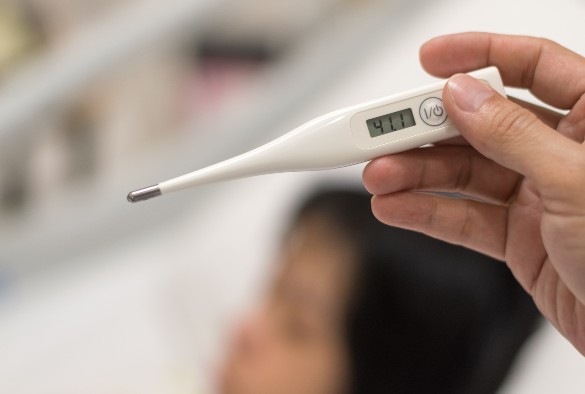
Meningitis is comparatively rare but meningitis b cases have recently increased in teenagers and young adults in the UK, and this can be very serious if not treated quickly.
It is important to be aware of the symptoms and be prepared to take urgent action whenever meningitis is suspected, as it can develop suddenly and progress rapidly.
Early symptoms include:
- fever with cold hands and feet
- vomiting
- drowsy or difficult to wake
- confusion and irritability
- severe muscle pain
- pale blotchy skin, spots or rash
- severe headache
- stiff neck
- dislike bright lights
- convulsions or seizures
These symptoms can appear in any order and some may not appear. It is important not to wait for a rash to develop before seeking medical attention. Make sure you also look out for friends, particularly if they go to their room unwell.
Vaccinations
We strongly encourage you to be vaccinated to keep yourself and others safe.
Most home students have been vaccinated with the Meningitis ACWY immunisation (protecting against four types of meningococcal disease) as part of the UK schools programme. However, if you have not been vaccinated against meningitis, mumps, measles or rubella – or you are not sure – it is important you contact your GP and arrange to receive the vaccines.
The vaccine is very effective in preventing cases of Meningitis A,C,W and Y disease but does not protect against other types of meningitis, like MenB, so it is important to know the above signs and how and when to seek help if you or a friend are ill.
You can arrange to have the vaccination free of charge by registering with a GP in Liverpool. You can register with Brownlow Health, our local practice here.
Seeking help
If you are concerned and need advice, but do not need urgent care for yourself or another student, you can call 111 for advice over the phone or go online to NHS 111.
In a medical emergency, do not delay – dial 999. If you are unwell, tell someone, preferably someone who can check that you are ok and call for help if you are not. Stay in touch with your neighbours and look out for each other.
More information on meningitis can be found here: https://www.nhs.uk/conditions/meningitis/